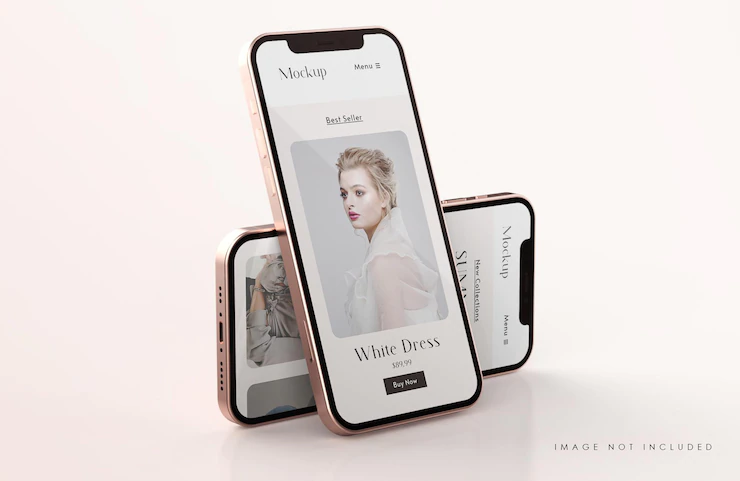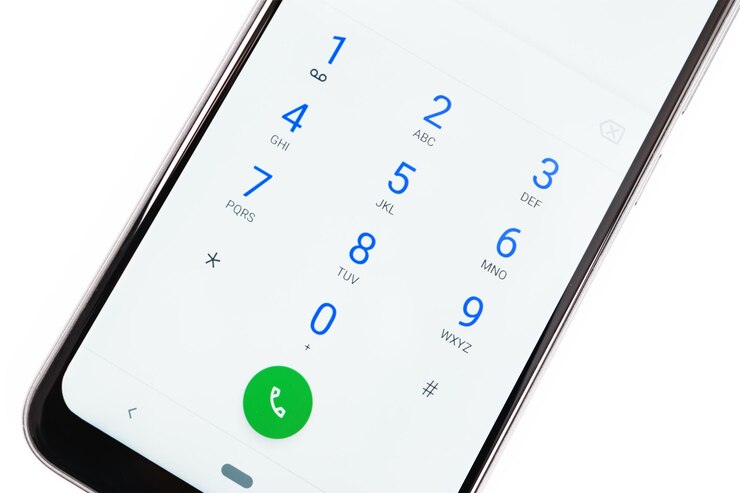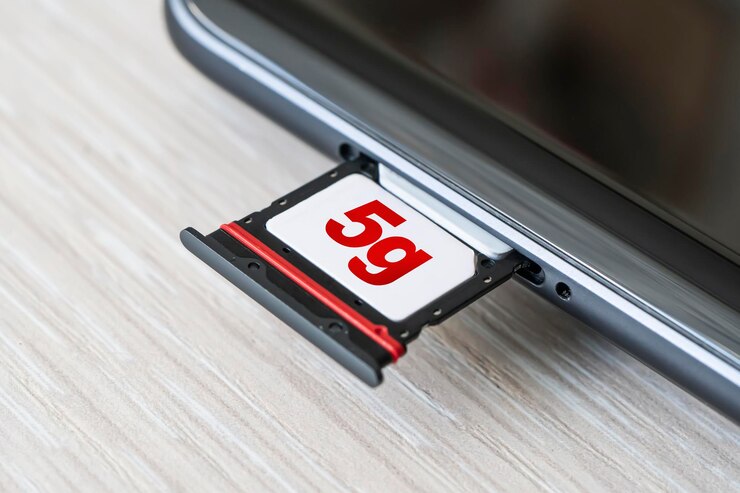Yes, you can use a Verizon SIM card in an unlocked phone. Verizon’s 4G LTE and 5G networks support a wide range of unlocked devices, providing flexibility for users.
Key Takeaways
- An unlocked phone is not restricted to any carrier network; therefore, you can use any cellular network carrier.
- You can use a Verizon Sim card on a locked phone, provided the device is eligible for use on Verizon.
- The first step to activating an unlocked phone on Verizon is checking the phone’s eligibility.
- Verizon has a BYOD program that enables unlocked phones to access its network.
- Unlocked phones get updates quickly since they don’t have to undergo a strenuous process.
- An unlocked phone is deprived of the cellular network carrier’s support, warranties, and insurance.
An unlocked phone typically works with any carrier. All that it requires is the appropriate technology to enable it to function correctly. Check out whether your carrier uses CDMA or GSM. Some carriers have a mixture of both technologies.
Another thing to check is whether your phone has the radio bands necessary for working with your network.
What is an Unlocked Phone?

Before exploring how to use a Verizon Sim card on an unlocked phone, let’s first understand what an unlocked phone is. Well, an unlocked phone is a smartphone that doesn’t have any software code restricting it from working on other cellular networks.
With an unlocked phone, you enjoy the freedom of getting mobile services from any compatible carrier with no restrictions whatsoever.
A Step-by-Step Guide on How to Activate Your Unlocked Phone on Verizon
Activating your unlocked phone on Verizon involves a straightforward process. This post breaks down the process step-by-step to enable you to do a seamless activation if you have a device that wasn’t bought from a Verizon store.
Step 1: Confirm Your Device’s Eligibility
This is an important step that you’ll never skip. The essence of this step is to determine whether your unlocked phone is eligible for use on the Verizon network.
To confirm whether your device is eligible for use with the Verizon network, Follow these steps:
- Visit the Verizon Device Details Page online.
- Key in your device’s make and model (e.g., Samsung J7 NXT)
- Answer the pop-up prompt asking you where you purchased the smartphone.
- Enter your phone’s IMEI number.
- Click the ‘Continue’ button, and wait for the system to confirm whether your phone is legible.
Note: Here is how to find your iPhone’s IMEI number:
- Open ‘Settings.’
- Go to ‘General.’
- Then select ‘About.’
- Scroll down until you see the IMEI Information.
Finding your Android’s IMEI number:

- Go to ‘Settings.’
- Then ‘About.’
- Select the ‘Phone option.’
- Click on ‘Status.’
- Finally, locate the IMEI information.
After ascertaining the eligibility of your unlocked phone, it’s time to move to step 2.
Step 2: Choose the Plan
Verizon provides postpaid and prepaid plans. So, in this step, you must choose a plan that works well. You can opt for a prepaid plan that doesn’t have annual and long-contract or a postpaid one. The choice is down to your preference.
Step 3: Acquire a Verizon Sim Card
Your device needs a Verizon Sim card to connect to the network. Therefore, you need to buy a Verizon Sim card and install it.
You can decide to purchase the Sim card in-store or order it online, depending on the choice that works best for you.
Suppose you buy the Sim online; the company will mail it to you after filling out your credit card information.
Step 4: Insert the Sim Card Into Your Phone

After purchasing a Verizon Sim card, it is time you insert it into the unlocked phone. Here is how to insert the Sim card:
- Power off your smartphone.
- You might require a Sim card removal tool to access the tray mechanism.
- Insert the Verizon Sim card into the tray.
- Finally, power on your smartphone and be patient as it initializes.
After powering on your device, you might be prompted for an IMEI number. Input the IMEI, and you can start using your unlocked phone on the Verizon network.
Buying an Unlocked Verizon Phone
Suppose you don’t have an unlocked phone; you can purchase one from Verizon. Verizon sells pre-unlocked phones to customers who wish to buy and use them on their network.
Here is how to purchase an Unlocked phone from Verizon:
- Visit the ‘Verizon Bring Your Own Device’ online page.
- Navigate to ‘Check Out More Unlocked Devices.’
- Select ‘Unlocked smartphones,’ and choose the device of your liking.
The Benefits of an Unlocked Phone
- Freedom: With an unlocked phone, you don’t have contracts with any cellular provider. Therefore, since you have no restrictions, you can choose the carrier that fits your requirements.
- No Pricier Monthly Subscriptions: Owning an unlocked phone means you are debt-free; hence you wouldn’t be making hefty monthly payments to the carrier.
- Unlocked Phones are Cheaper: Getting a locked phone from the carrier not only restricts you to their network, but the devices also come at an expensive price point. Besides, you will also be hooked to stay with the carrier until the contract lapses.
- You Can Buy Any Brand You Like: Carriers will restrict you to specific brands they offer. However, with unlocked phones, you can choose any phone manufacturer of your liking.
- Avoidance of Carrier Bloatware: Carriers sometimes install unnecessary apps on their phones, but if you purchase an unlocked phone, you decide which app goes to the phone.
- Getting Updates Quickly: Locked phones follow a long process before receiving updates. For instance, when Google releases an update, it is passed to the manufacturer, then to the carrier, who will analyze it before releasing it to the phone. However, with unlocked phones, the process is short and quick.
The Drawbacks of Unlocked Phones
- Higher Upfront Cost: Unlocked phones are often pricier upfront since you’re not benefiting from carrier subsidies or financing.
- Limited Carrier Deals: Carrier-locked phones may offer exclusive deals, discounts, or trade-in options when you sign a contract, which unlocked phones do not provide.
- Lack of Customer Support: Unlocked phones might not receive carrier-specific customer support, making it challenging to address certain issues or receive technical assistance.
- Warranty Limitations: Some phone manufacturers may limit warranty coverage for unlocked devices, potentially leaving you with fewer options for repairs or replacements.
- Incompatibility: Unlocked phones may not be compatible with all carriers or network technologies, restricting your choices.
- Delayed Software Updates: Carrier-locked phones tend to receive software updates faster than unlocked counterparts, which can leave your device vulnerable to security risks.
- Bloatware Removal: Carrier-locked phones may have pre-installed apps (bloatware) that you can’t remove on an unlocked device.
Reasons Why Carriers Lock Phones
The locking of phones by carriers is a prevalent practice worldwide, and there are several reasons behind this action. Here’s a listicle elaborating on the causes:
- Exclusivity Rights: Carriers often lock phones to ensure a monopoly in their services. It grants them exclusive rights to the phone’s operation, ensuring that the user cannot use any other service provider’s network. This exclusivity allows the carrier to retain its customer base and control competition.
- To Subsidize the Cost of the Phone: Often cellphones, especially high-end ones like iPhone or Samsung Galaxy series, come with hefty price tags. To make these devices more affordable, carriers subsidize the cost, spreading it out over a contract period, typically two years. To recover this cost, carriers lock the phones, ensuring consumers stick to their network until the contract ends.
- Preventing Network Overload: By locking phones to certain networks, carriers can prevent their network from becoming overloaded with users. This strategy helps maintain a good quality of service and a balanced network load.
- Reducing Loss from Theft: Locking of phones also decreases the market value of stolen phones because they are locked to a specific carrier. This practice potentially deters theft as the phone cannot be used with a different service, making it less desirable to thieves.
- Ensuring Customer Commitment: By locking phones, carriers ensure customer loyalty and commitment. Customers, tied into a network, are less likely to switch service providers. Carriers are thereby able to foster long-standing relationships with customers.
- Enforcing Roaming Charges: When phones are unlocked, users can easily use local SIM cards while traveling internationally, bypassing the carrier’s international roaming charges. By keeping the phones locked, carriers can impose such charges and increase their revenue.
Here is the summarized list in a table:
| Reason | Description |
|---|---|
| Exclusivity Rights | Retain customer base and control competition. |
| Subsidizing Costs | Spread out the cost of expensive devices over a contract period. |
| Preventing Network Overload | Maintain quality of service and balanced network load. |
| Reducing Loss from Theft | Decrease the market value of stolen phones and deter theft. |
| Ensuring Customer Commitment | Foster long-standing customer relationships. |
| Enforcing Roaming Charges | Impose international roaming charges to increase revenue. |
References
https://www.verizon.com/articles/switching-to-verizon/whats-an-unlocked-phone/
Hello, I’m Herman C. Miller, the founder of InternetPKG.com, your ultimate destination for all things Mobile Internet and Telecommunication Services. With a BSc in Telecommunication Services and over 6 years at AT&T, my passion for the industry led to this platform. At InternetPKG.com, we prioritize keeping you informed with the latest package offers, ensuring our content stays current. Our team, including a dedicated Internet Package and Mobile Data Plans Researcher, tirelessly researches emerging trends, identifies market opportunities, and provides expert product recommendations.
